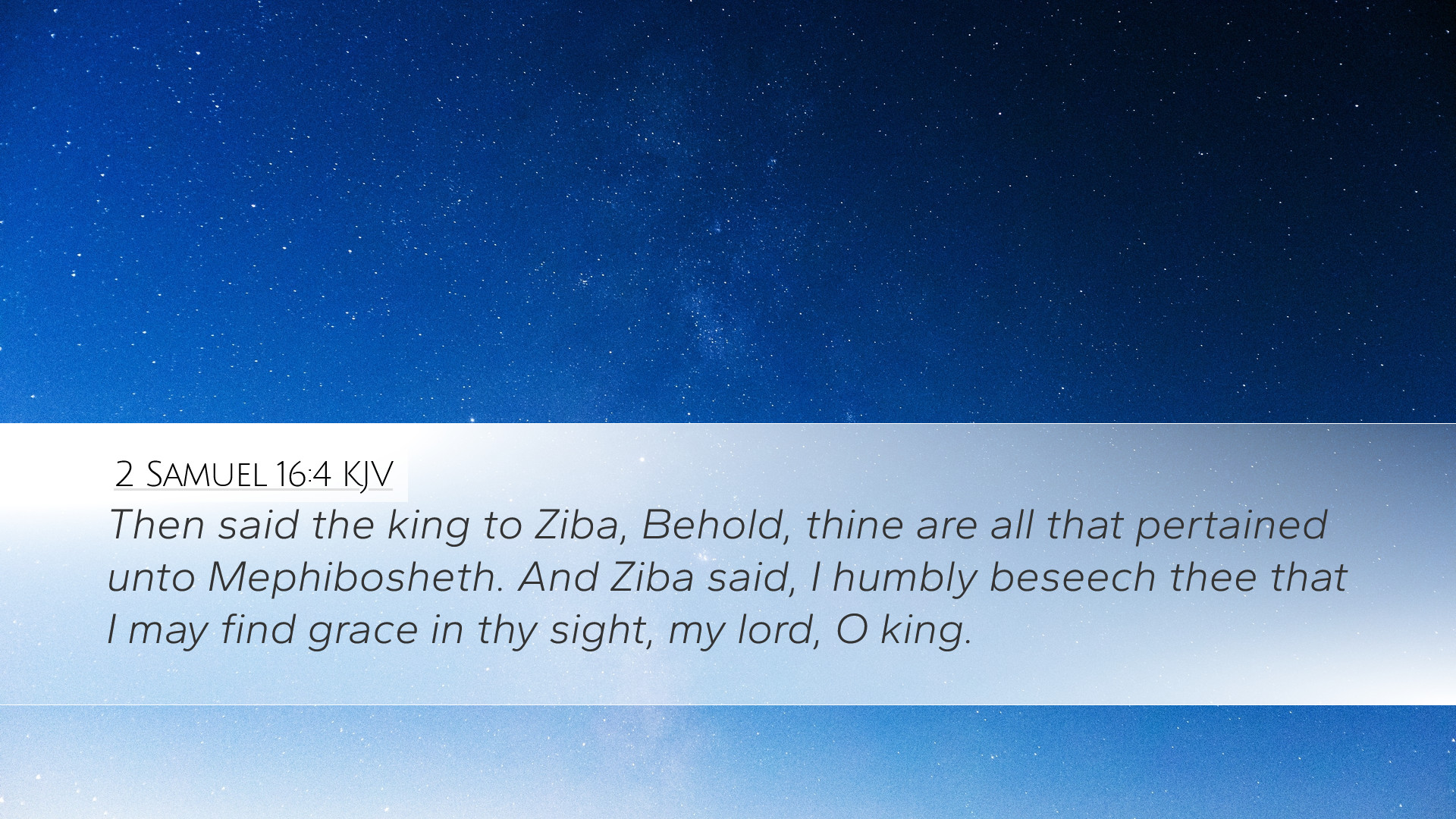Old Testament
Genesis Exodus Leviticus Numbers Deuteronomy Joshua Judges Ruth 1 Samuel 2 Samuel 1 Kings 2 Kings 1 Chronicles 2 Chronicles Ezra Nehemiah Esther Job Psalms Proverbs Ecclesiastes Song of Solomon Isaiah Jeremiah Lamentations Ezekiel Daniel Hosea Joel Amos Obadiah Jonah Micah Nahum Habakkuk Zephaniah Haggai Zechariah MalachiVerse
2 Samuel 16:1 2 Samuel 16:2 2 Samuel 16:3 2 Samuel 16:4 2 Samuel 16:5 2 Samuel 16:6 2 Samuel 16:7 2 Samuel 16:8 2 Samuel 16:9 2 Samuel 16:10 2 Samuel 16:11 2 Samuel 16:12 2 Samuel 16:13 2 Samuel 16:14 2 Samuel 16:15 2 Samuel 16:16 2 Samuel 16:17 2 Samuel 16:18 2 Samuel 16:19 2 Samuel 16:20 2 Samuel 16:21 2 Samuel 16:22 2 Samuel 16:23

